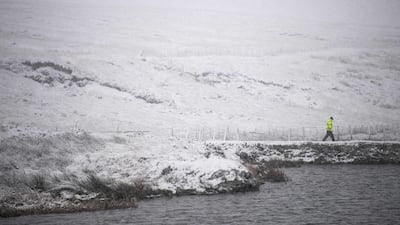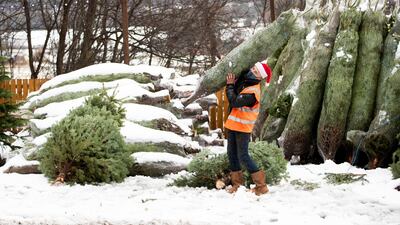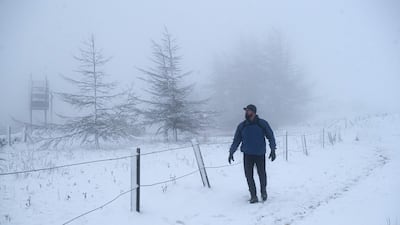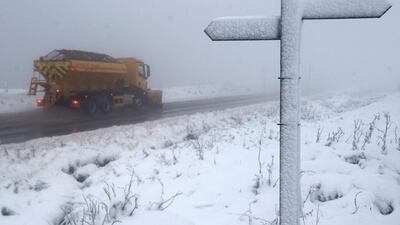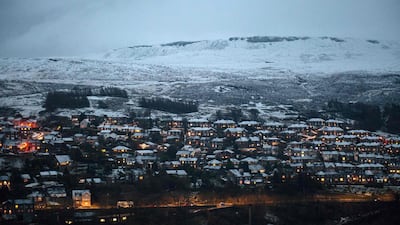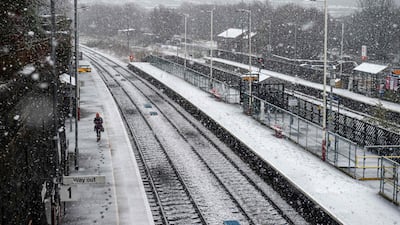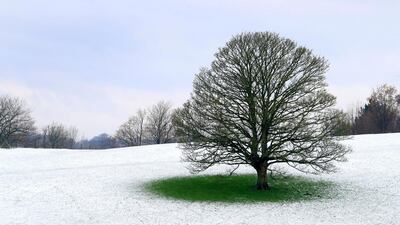By the end of the century snow may no longer settle on the ground in Britain as the climate crisis results in warmer and wetter winters, a new study has revealed.
Research by the Met Office suggests traditional winter pastimes such as building snowmen, sledging and throwing snowballs could die out unless action is taken to tackle rising greenhouse gas emissions.

Extreme weather events, such as turbulent storms and sweltering summer heatwaves, could be an unwanted side effect of the changing meteorological patterns.
The findings, which will feature on BBC's Panorama on Monday, suggest that by the 2040s the south of England may no longer experience any days when temperatures drop to freezing or below, while only elevated ground way above sea level, such as the Scottish Highlands, will experience freezing temperatures by 2080.
Meanwhile, summer temperatures will continue to rise in the coming decades, extending the recent trend of sunnier, drier weather, although the regional effect could vary.
The Met Office said the study assumes that global emissions will continue to rise for the rest of the century, and experts acknowledged that while their prediction may not be the most likely outcome, it is a credible scenario.
Weather forecasters said that while Britain could avoid a major rise in temperatures if carbon emissions are reduced, average temperatures are still likely to increase.
Senior Met Office scientist Dr Lizzie Kendon told Panorama the prediction was a "wake-up call".
“We’re saying by the end of the century much of the lying snow will have disappeared entirely, except over the highest ground,” she said.
“The overarching picture is warmer, wetter winters; hotter, drier summers. But within that, we get this shift towards more extreme events, more frequent and intense extremes, so heavier rainfall when it occurs. It’s a big change ... in the course of our lifetime.”
